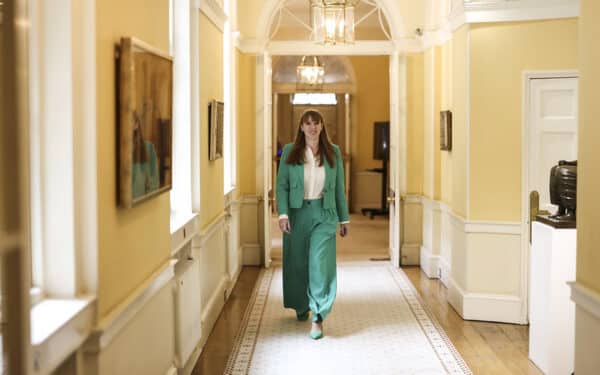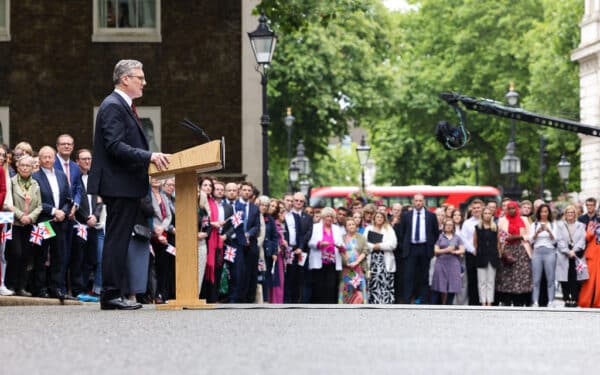In a devastatingly symbolic blow to Rishi Sunak, The Sun announced this afternoon that it’s “time for a new manager” as it declared its backing for Labour. It joins the Financial Times, Economist, and Evening Standard in switching away from the Conservative party for the first time since 2005.
Tony Blair’s success in securing Rupert Murdoch’s seal of approval in 1997 represented a remarkable coup and embodied the sheer force of the Zeitgeist propelling New Labour to its landslide victory.
Comparisons with those halcyon days of Cool Britannia seem inevitable. After all, the Tories are set to be avalanched down and out of power in the face of yet another stunning Labour triumph. As before, Keir Starmer, too, can command a roll call of actors, artists, directors, and musicians to flank him in the cultural landscape.
For weeks, if not months, polls have been warning that the Tories are in for an almighty thrashing, with some particularly apocalyptic surveys predicting the Conservative party reduced to a rump of 80 seats or fewer. Meanwhile, the seemingly inexorable march towards Labour appears to have crashed the betting market – given the one per cent likelihood of a Conservative majority, there is little point in placing a wager at all (unless, of course, you’re a Westminster insider).
All the usual electoral weathervanes definitively point in a single direction. Yet closer inspection of the extreme turbulence indicates that we may not be in Kansas anymore. As Gerald Warner writes in Reaction today, Labour may be “the first British government to be unpopular even before its election”.
Moreover, the sheer variation in the scale of a projected Labour victory has been notable for its volatility, not least because around one in eight of the public remains undecided. A recent Times analysis, for example, shows that just 130,000 votes in 100 seats could make the difference between a 200-seat Labour majority and a hung parliament.
In stark contrast to the heady optimism and euphoria on the eve of New Labour’s coming to power, the mood music on the streets is distinctly downcast. The 1997 general election saw a turnout of 71.3 per cent, but voter apathy in the face of Labour’s supposed “supermajority” and general distrust of politicians means that figure is set to be much lower this time round.
This suggests that we should be wary of misinterpreting the outcome of tomorrow’s vote. Despite the almost fantastical predictions about the size of Labour’s parliamentary majority, the fact is that this will be the tightest election per seat in 14 years, due to the unexpected emergence of Reform and the revival of the Lib Dems as a serious political force, creating more battlefield constituencies than ever before.
Indeed, the combined two-party share of the vote is set to be the lowest ever in a universal franchise election, exposing the failings of our current first-past-the-post system. The latest model from Focaldata has predicted Labour is on course for a 250-seat majority based on a 41.4 per cent share of the national vote. But Starmer will find it difficult to withstand pressures for electoral reform, if third parties attract millions of voters without a proportionate gain in seats.
There have been many fatalistic and anguished cries about the potential decimation of the Conservative party. Beneath its stolid veneer, Starmer’s team might well be feeling smug about dealing a devastating blow to its longstanding foe. But it should be wary of its electoral Midas touch: this election may see not just the Tories but the two-party system bite the dust, heralding what is ultimately a Pyrrhic victory for Labour.
Write to us with your comments to be considered for publication at letters@reaction.life




